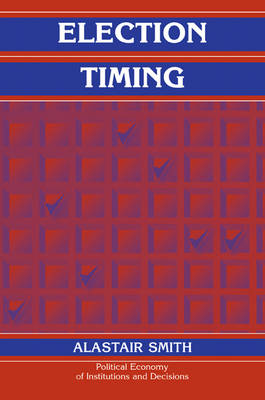Endogenous election timing allows leaders to schedule elections 'when the time is right'. The author proposes and tests an informational theory of endogenous election timing that explains when leaders call for elections and the consequences of their decisions. In particular, he argues that, if all else is equal, leaders announce elections when they anticipate a decline in their future performance. As a consequence, early elections signal a leader's lack of confidence in future outcomes. The earlier elections occur, relative to expectations, the stronger the signal of demise. Using data on British parliaments since 1945, the author tests hypotheses related to timing of elections, electoral support and subsequent economic performance. Leaders who call elections early (relative to expectations) experience a decline in their popular support relative to pre-announcement levels, experience worse post-electoral performance, and have shorter campaigns.
- ISBN13 9780521108317
- Publish Date 9 April 2009 (first published 19 July 2004)
- Publish Status Active
- Publish Country GB
- Imprint Cambridge University Press
- Format Paperback (US Trade)
- Pages 288
- Language English
